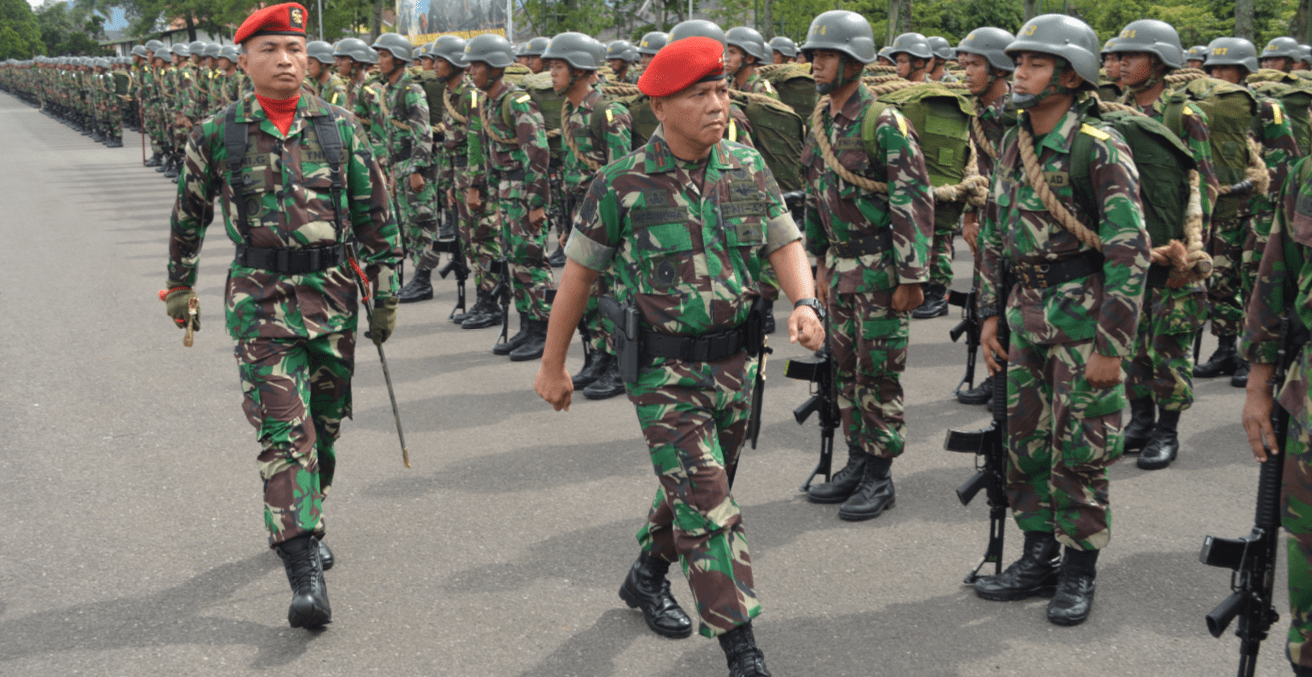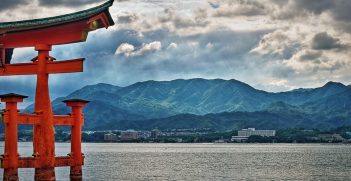What Indonesia’s Rise Means to Australia

Indonesia’s rise presents both threats and opportunities for Australia.
Central to Australia’s concerns about Indonesia is whether our immediate neighbour to the north is a strategic liability or asset, and how this may potentially change over the next few decades. A reappraisal of Australia’s evolving bilateral strategic relationship and the wider regional environment offers a mixed assessment: Indonesia has the propensity to exhibit both elements for Australia due to its geographic proximity, relative power, historical experiences and political values. As Beijing continues to rise faster and engage in more assertive and threatening behaviour, shared strategic concerns will encourage both parties to seek closer ties in order to hedge against China. However, Jakarta is likely to remain only a limited strategic asset due to its fear of entrapment in the regional great-power competition.
Indonesia as a threat
Indonesia has the potential to appear both as a strategic liability and a strategic asset for Australia. This is due to the inherent problems emerging from the two states’ geographic proximity, relative size and power, historical experience and political values. However, Jakarta’s strategic value for Canberra is not static, as some of the variables within their bilateral relationship are transformative and changes in the wider international environment may alter the way they perceive themselves and their neighbours.
Since the 1986 Dibb Review, the principle of concentric hierarchy has persistently informed Australians to prioritise issues that are geographically closer and situations where distant allies are unlikely to provide support. While geography may not be a straitjacket, it remains an important variable in conceptualising Australia’s strategic interests. Seen in this light, Australia’s proximity with Indonesia requires it to continually keep watch on its immediate neighbour. Not only to deter Jakarta from pursuing hostile policies that directly threaten Canberra, but also to prevent the archipelagic state from becoming a forward base from which external powers can stage or threaten a direct attack on the continent.
The former, deterring a hostile Indonesia, is not formally spelled out in recent Australian Defence White Papers (DWPs), but remains essential in light of geographic proximity. Indonesia is situated between Australia and the wider Asia-Pacific region to the north. It acts as a critical ‘chokepoint’ through which major shipping lanes and air transit to and from Australia take place. A hostile Indonesia could endanger our major sea-lanes of communication and put our maritime economy in jeopardy. Preventing Jakarta from becoming a forward base for external powers was informed by Australia’s experience during World War II, when Imperial Japan overran Indonesia and attempted to invade South Pacific countries and isolate Australia in order to prevent the Allies from launching a counter-offensive. This may manifest again in future, especially if the US-led regional order continues to crumble and be challenged by other emerging powers.
It also remains possible that, despite advances in long-range projectile capabilities, external powers have an enduring interest in gaining access to bases in Australia’s immediate north if they so desire an attack on the continent. This is due to the ‘sea-air gap’ long enjoyed by Australia, where “sheer distance still makes a big difference to the capacity to project many kinds of military power,” Professor Hugh White emphasises, including land and air forces which “continue to be shaped and limited by the range of ships and aircraft, the length and vulnerability of supply lines, and access to bases.” Any conventional threat to Australia would have to first enter from or through Indonesia. And any failure from Jakarta to maintain maritime territorial autonomy – either voluntarily or by force – would allow external major powers to encroach on Australia’s northern approaches and erode Australia’s sea-air gap.
Besides geographic proximity, the unofficial strategic interest of deterring a threatening Indonesia also informs Australia’s historical experience and relative power. However, the mismatch of alliance strategic interests over Indonesia means that Australia has to rely on itself to maintain a technologically superior maritime edge that makes use of the ‘sea-air gap’ in a potential Australian-Indonesian military contingency. Although Jakarta no longer pursues a revisionist foreign policy, its vast demographic and economic size may give it the potential to pursue more ambitious policies and military capabilities that directly threaten the continent.
In addition, Australia and Indonesia have distinctly different political values. In contrast to Indonesia, which is firmly rooted in the Malay Archipelago with a long history of empires and has seen the emergence of anti-colonialism and political Islam in its nation-building, Australia emerged as an outpost of the British Empire with a political history, religion and ethnic-makeup largely rooted in the Anglo-Saxon world. As a result, despite attempts at cultivating understandings through educational and cross-cultural initiatives, there remains a genuine lack of understanding in Australia of Indonesia’s values and culture. Thus, despite Jakarta’s democratisation, Australian policymakers continue to caution against the proliferation of Islamic fundamentalism and terrorism in its immediate neighbourhood.
Indonesia’s value to Australia
Yet, even as Jakarta exhibits characteristics that reinforce a sense of strategic liability, its size and proximity also makes it a potential strategic buffer against external powers. While Indonesia’s emerging great-power capacity may induce its leaders to adopt a more assertive foreign policy, it may also encourage them to expand Indonesia’s maritime capabilities for the purpose of balancing China’s rise. The latter will contribute to Australia’s sea-air gap defences in the northern approaches against potential Chinese military encroachment. Furthermore, the common interest of tackling Islamic extremism and promoting bilateral economic cooperation makes Indonesia an important strategic partner. Islamic extremism is threatening not just to Canberra’s domestic values, but also to the moderate pluralist Islamic camp in Jakarta that recognises the dangers of radicalisation in a nation with the second-largest Muslim-majority in the world. Trade and investment also remains essential as the Australian-Indonesian bilateral economic relationship remains underdeveloped. These common interests therefore inform the other face of Indonesia as a potential strategic asset for Australia.
Coming decades
It is likely that both countries will work closer to strengthen their strategic environment. This is driven by the increasing mixed perception of threats and opportunities which China’s rise has posed to Indonesia, with a particular weight on issues regarding territorial sovereignty and Chinese economic dominance. However, their bilateral cooperation will be limited by a lack of a shared strategic approach. Unlike Canberra, Jakarta is not as ready to support Washington and confront Beijing. It remains cautious that America’s heightened presence may escalate regional tensions. Its asymmetric economic relationship with China and priority on advancing its ‘global maritime fulcrum’ also makes Indonesia unwilling to overtly resist Beijing in ways that may harm their economic relations and put its long-term development objectives on hold. These caveats mean that Indonesia will likely remain a limited strategic asset for Australia in the years ahead.
Tommy Chai is an Editor of the Australian Institute of International Affairs’ Australian Outlook and a volunteer risk analyst for Foreign Brief. He will be pursuing a Masters of Strategic Studies (Advanced) in the ANU’s Strategic & Defence Studies Centre next year.
This article is published under a Creative Commons Licence and may be republished with attribution.





